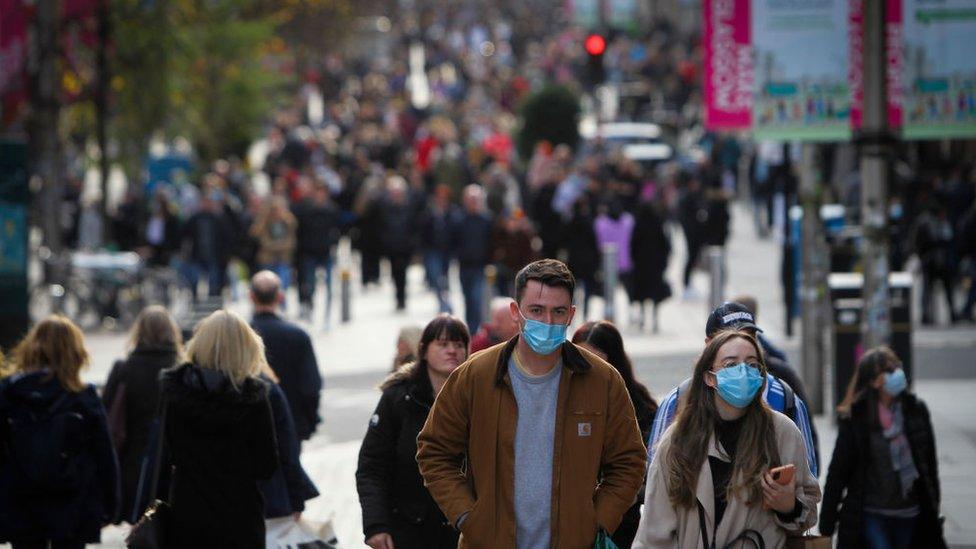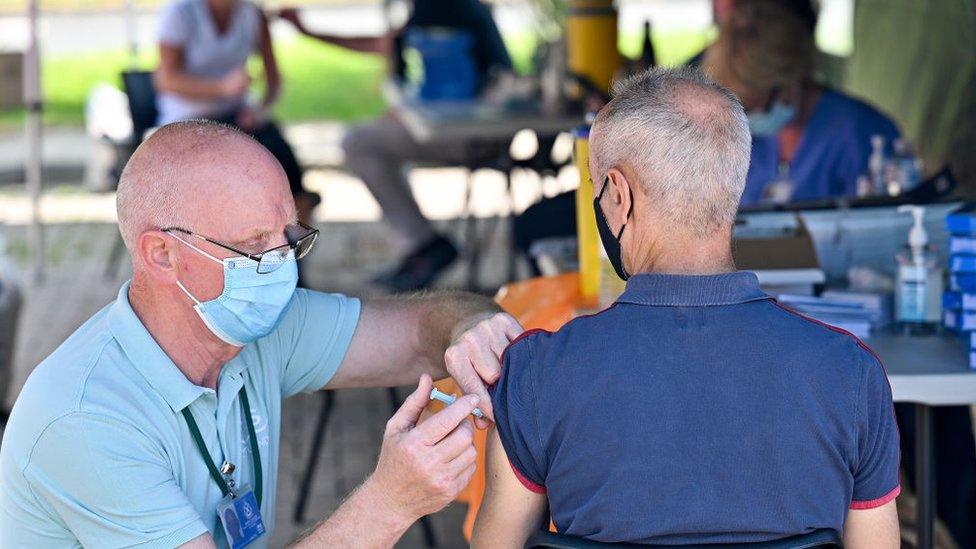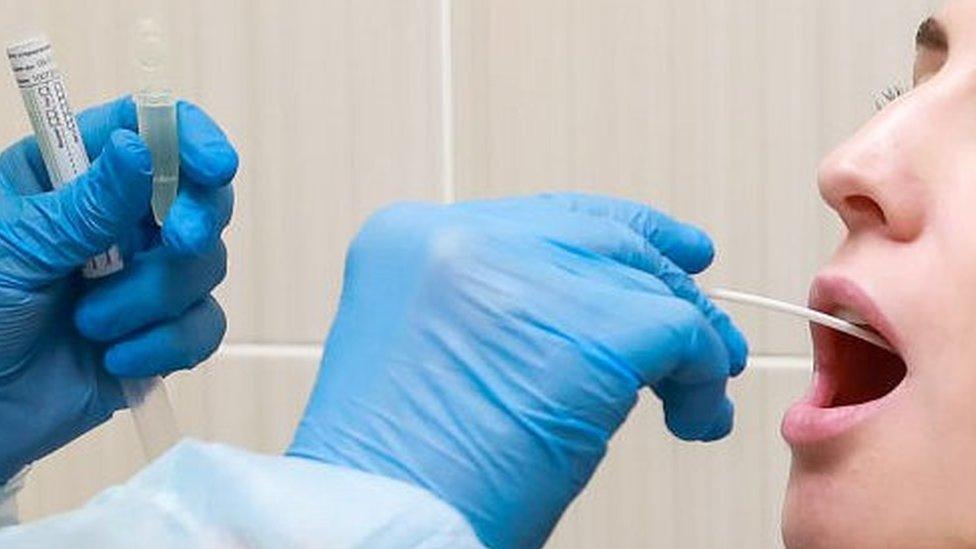Covid in Scotland: What will the next few months be like?
- Published

Scotland has put the brakes on easing Covid restrictions this summer and it is all down to the new Delta variant that first emerged in India.
We may have seen it coming but that doesn't stop a familiar anxiety creeping across our shoulders. Despite confident assertions from the first minister that this is just "a pause", we have been here before.
The good news is that scientists do not seem to be overly worried.
Scotland may have the highest infection rate in Europe but it also has one of the highest vaccination rates and the jabs are doing their job.
Prof Aziz Sheikh is the director of Edinburgh University's Usher Institute for Population Health.
His team has been working with Public Health Scotland to track the pandemic in real time.
Their latest research, published in the Lancet this week, does raise some concerns about the Delta variant.

They found that not only was it more infectious than the Alpha variant, first identified in Kent, but that the risk of hospital admission was double.
But Prof Sheikh says vaccines are providing good levels of protection.
"The vaccines overall are still very effective which is fantastic news, and that's both the Oxford-AstraZeneca and Pfizer-BioNTech vaccine," he says.
"But there seems to be a bit of a delay with the vaccines exerting their maximum effectiveness, so the key message here is that the second dose is really important, and what we need to do after that is give people a couple of weeks to mount their immune response."
That's one reason to buy more time.
Just over 56% of the adult population in Scotland has had two doses but almost 900,000 people - one in every five adults - are still completely unvaccinated.
So keeping existing restrictions will allow many more people the chance to get at least one jab.
The scientists also want time to monitor the data in detail.
There has been an increase in the number of people in hospital over the past few weeks.
It's nothing like the rise we saw in previous waves, and it appears that this time patients tend to be younger, less likely to need intensive care, and stay in for shorter periods - meaning the pressure on the NHS is less intense.
A few more weeks of data gathering will allow a clearer picture of what is going to emerge.
You could see this wave of infections as a test.
By mid-July we will know how well we've coped and the rest of the summer could look a lot brighter. But that doesn't mean Covid is banished from our lives.

Prof Emma Thomson compares the role of vaccines to a dam, holding back the virus
Prof Emma Thomson is an infectious diseases consultant working with Covid patients at the Queen Elizabeth University Hospital in Glasgow.
She is also one of the leading scientists behind the UK's efforts to identify and monitor new variants and is running a trial in Scotland to investigate the role of booster jags.
She compares the role of vaccines to a dam, holding back the virus.
As restrictions ease, she says, we're asking the vaccines to work harder to do that and so far they're succeeding.
But we are starting to seeing chinks where the virus is breaking through the dam - with new variants for example - so it needs to be constantly reinforced.
For now that means speeding up second doses, but as time goes on, scientists will need to continuously adapt the vaccines to plug more holes, and to make sure they maintain the advantage and stop the virus overwhelming us again.

Prof Thomson says the virus is here to stay in the medium term.
"Most of us think that we are going to be stuck with it, possibly for years to come.," she says.
"The key thing that we need to do is to get ahead of it. And if we can get ahead of it with booster vaccines or with adapted vaccines then it becomes something for us to worry about as health professionals, and it becomes less of a major strain on the country."
That's why sequencing and monitoring new variants is so important.
At Glasgow University's Centre for Virus Research, they made an early call to put all other work on hold to do that, last March.

Prof David Robertson says the speed with which the Delta variant became dominant took experts by surprise.
Prof David Robertson, head of bioinformatics, explains that the Delta variant was introduced to the UK hundreds of times in hundreds of locations, since it was first detected in early April.
He says the speed with which it became the dominant variant took experts by surprise. But the big question now is when and how the next powerful mutation will arise.
"What is predictable is that the virus will continue to evolve and the ability to escape the human immune response is inevitable," he says.
"We really just don't know the timeline that that will emerge on, so it seems wise to proceed on the assumption that worse mutations will emerge sooner rather than later.
"It won't be tomorrow, and it's not five years - but it's somewhere in between.
"So keeping our surveillance systems in place and making sure not too much virus is circulating seems wise. That's how this will become normal in the longer term."
Hopefully it will soon be an issue that only worries the scientists - allowing the rest of society to slowly reset.
In the meantime, politicians will have to wrestle with what might be acceptable levels of coronavirus - an equation that gets ever more difficult to answer.